RSPB asks Manchester residents to take part in world’s largest wildlife survey
- Written by Louise Rhind-Tutt
- Last updated 4 years ago
- Community, Family & Kids
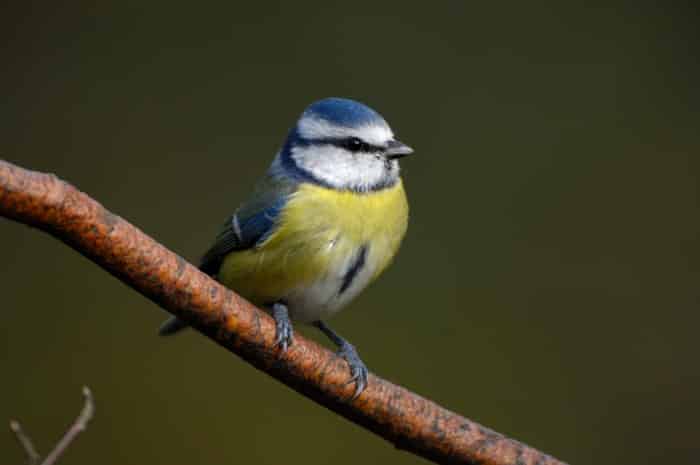
This year, we’ve seen how important the natural world is to our mental health and wellbeing.
A surge of interest in the nature on our doorsteps has seen many people come to rely on the garden birds we spot to bring comfort in these unsettling times.
That’s why the RSPB is hoping to see more people than ever take part in the Big Garden Birdwatch, after over 13,000 Greater Manchester residents joined in last year.
Set to enter it’s 42nd year this month, the largest wildlife survey in the world runs from the 29th to 31st of January and combines over 40 years of records to monitor vital bird trends.
People across Greater Manchester are encouraged to get involved, spending just an hour of their time recording the birds seen from windows, balconies or gardens, and submitting the results to the wildlife charity.
Top bird sightings in Greater Manchester
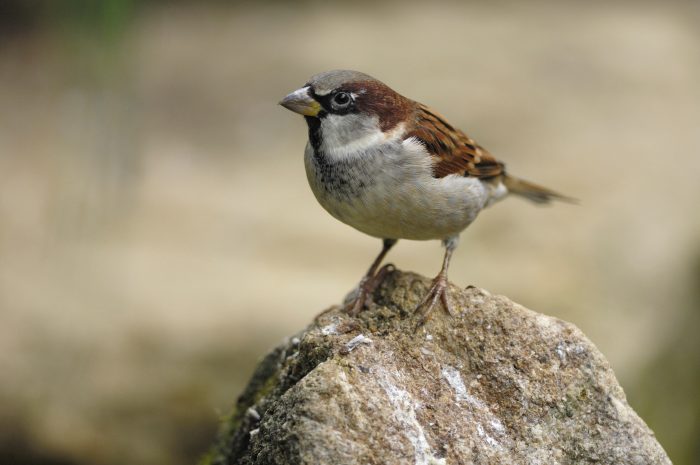
Both across the country and here in Greater Manchester, house sparrows topped the rankings in the RSPB’s Big Garden Birdwatch results last year, despite wider national decline.
Meanwhile, starlings and blue tits joined house sparrows to form the top three most sighted birds in Greater Manchester.
A common garden bird thanks to the provision of winter food and nest boxes, blue tits are on the rise across the country, with an 8% increase in the population since 1979.
Other birds featuring in the Greater Manchester “top ten” were goldfinches, robins and long tailed tits.
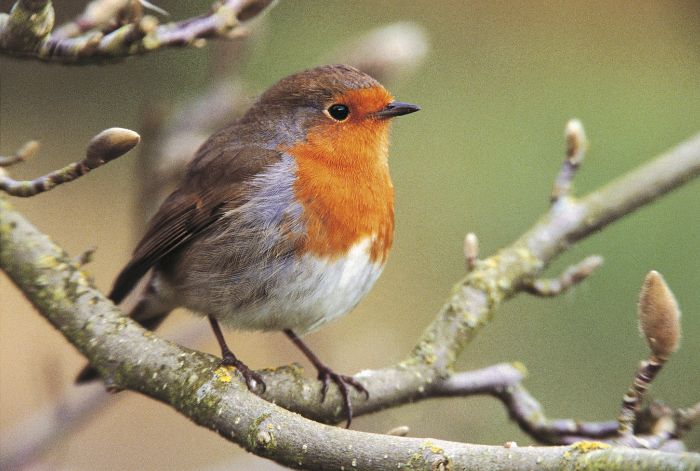
Seeing a positive change across the county’s gardens, long tailed tits were found in over 25% more Greater Manchester gardens in 2020 compared to previous years.
These charming birds, with distinctive pink grey and white feathers and long tail, are usually found in large flocks of up to 20 birds and often make use of garden feeders throughout the winter – so be sure to look out for them this year.
Allowing the RSPB to monitor similar bird trends across the country, the data collected during the Big Garden Birdwatch will create a ‘snapshot’ of bird numbers across the UK and how they have fared since the project began over 40 years ago.
Tips on feeding garden birds
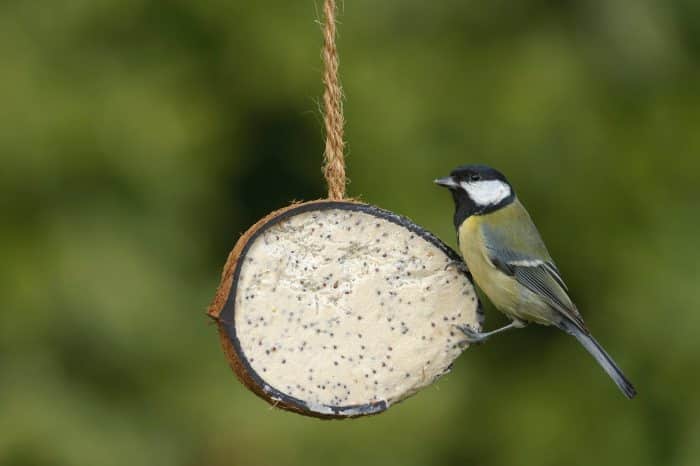
During winter, birds are more likely to come into our gardens to seek sanctuary and food in order to survive.
Providing food like fat balls and crushed peanuts can help birds to build up vital fat reserves and boost energy, while meal worms are great for insect eaters such as robins and starlings.
Seed mixes also provide for many birds with their vast array of calorie-rich contents, or you could pick out a few favourites such as sunflower and nyjer seeds which contain beneficial oils and proteins.
Feeding birds doesn’t have to break the bank either, as kitchen scraps will also be readily enjoyed by our feathered friends. Mild grated cheese, soft fruits, cooked rice and pasta, porridge oats and unsalted bacon are all suitable.
At this time of year, a supply of water is also essential, and if the weather turns cold, birds can become more dependent on water provided in gardens.
Making sure your water source remains clean and un-frozen is important in allowing birds to bathe and preen themselves, too.
‘Nature needs us’
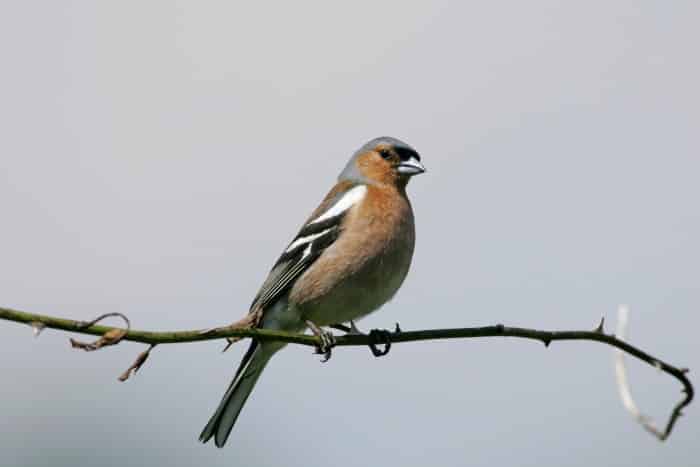
“We know that for many people, garden birds provide an important connection to the wider world and bring enormous joy,” says Beccy Speight, the RSPB’s Chief Executive.
“Lockdown brought few benefits, but the last year has either started or reignited a love of nature for many people.
“There has been a broad and much needed realisation that nature is an important and necessary part of our lives especially for our mental health and wellbeing.
“But nature needs us too.
“By taking part in the Birdwatch, you are helping to build an annual snapshot of how our birdlife is doing across the UK.
“It is only by us understanding how our wildlife is faring that we can protect it.
“We know that nature is in crisis but together, we can take action to solve the problems facing nature.”
The Big Garden Birdwatch, runs from the 29th to 31st January 2021, and the RSPB is asking those taking part to share what they’ve seen during the hour by submitting their results at rspb.org.uk/birdwatch. The RSPB will provide a free Big Garden Birdwatch guide, which includes a bird identification chart, top tips for your birdwatch, RSPB shop voucher, plus advice on how to help you attract wildlife to your garden, for those who text BIRD to 70030 or register at rspb.org.uk/birdwatch.
- This article was last updated 4 years ago.
- It was first published on 19 January 2021 and is subject to be updated from time to time. Please refresh or return to see the latest version.
Did we miss something? Let us know: press@ilovemanchester.com
Want to be the first to receive all the latest news stories, what’s on and events from the heart of Manchester? Sign up here.
Manchester is a successful city, but many people suffer. I Love Manchester helps raise awareness and funds to help improve the lives and prospects of people across Greater Manchester – and we can’t do it without your help. So please support us with what you can so we can continue to spread the love. Thank you in advance!
An email you’ll love. Subscribe to our newsletter to get the latest news stories delivered direct to your inbox.
Got a story worth sharing?
What’s the story? We are all ears when it comes to positive news and inspiring stories. You can send story ideas to press@ilovemanchester.com
While we can’t guarantee to publish everything, we will always consider any enquiry or idea that promotes:
- Independent new openings
- Human interest
- Not-for-profit organisations
- Community Interest Companies (CiCs) and projects
- Charities and charitable initiatives
- Affordability and offers saving people over 20%
For anything else, don’t hesitate to get in touch with us about advertorials (from £350+VAT) and advertising opportunities: advertise@ilovemanchester.com

The Manc aerobics queen who trained the Corrie cast is helping raise charity cash

Ancoats to get even cooler as independent market set for MOT garage site

Review: The Moth at LOWRY is ‘a poignant reflection on race, war, and identity’

“Manchester is not Britain’s second city, it’s the first” – Jeremy Clarkson
















